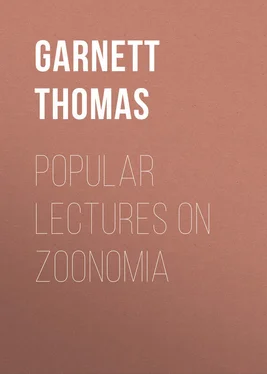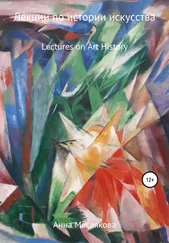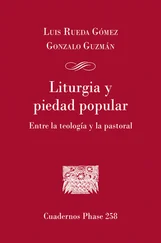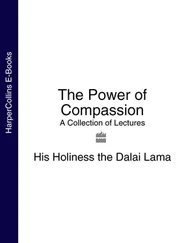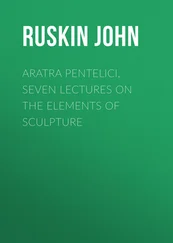Thomas Garnett - Popular Lectures on Zoonomia
Здесь есть возможность читать онлайн «Thomas Garnett - Popular Lectures on Zoonomia» — ознакомительный отрывок электронной книги совершенно бесплатно, а после прочтения отрывка купить полную версию. В некоторых случаях можно слушать аудио, скачать через торрент в формате fb2 и присутствует краткое содержание. Жанр: Биология, foreign_antique, foreign_prose, на английском языке. Описание произведения, (предисловие) а так же отзывы посетителей доступны на портале библиотеки ЛибКат.
- Название:Popular Lectures on Zoonomia
- Автор:
- Жанр:
- Год:неизвестен
- ISBN:нет данных
- Рейтинг книги:4 / 5. Голосов: 1
-
Избранное:Добавить в избранное
- Отзывы:
-
Ваша оценка:
- 80
- 1
- 2
- 3
- 4
- 5
Popular Lectures on Zoonomia: краткое содержание, описание и аннотация
Предлагаем к чтению аннотацию, описание, краткое содержание или предисловие (зависит от того, что написал сам автор книги «Popular Lectures on Zoonomia»). Если вы не нашли необходимую информацию о книге — напишите в комментариях, мы постараемся отыскать её.
Popular Lectures on Zoonomia — читать онлайн ознакомительный отрывок
Ниже представлен текст книги, разбитый по страницам. Система сохранения места последней прочитанной страницы, позволяет с удобством читать онлайн бесплатно книгу «Popular Lectures on Zoonomia», без необходимости каждый раз заново искать на чём Вы остановились. Поставьте закладку, и сможете в любой момент перейти на страницу, на которой закончили чтение.
Интервал:
Закладка:
Dr. Garnett was received by the Managers of the Royal Institution with attention, civility, and respect. During the winter, the lecture room was crowded with persons of the first distinction and fashion, as well as by those who had individually contributed much to the promotion of science; and although the northern accent, which Dr. Garnett still retained in a slight degree, rendered his voice somewhat inharmonious to an audience in London, his modest and unaffected manner of delivering his opinions, his familiar, and at the same time elegant language, rendered him the object of almost universal kindness and approbation.
The exertions of the winter had in some measure injured his health, and a degree of uncertainty that he saw in his prospects, tended greatly to depress his spirits. He determined, however, to keep his situation at the Institution, in order that he might at a more convenient time be justified to himself in resigning it. In the summer of 1800, he visited his children in Westmoreland; but his anxiety of mind was not diminished, nor consequently his health improved, by this relaxation from active employment. He walked over the same ground, and viewed the same prospects that he had formerly enjoyed in the company of his wife. He had not resolution to check the impressions as they arose; and thus, instead of being solaced by the beauties which surrounded him, he gave the reins to his melancholy fancy, which, unchecked by any other remembrance, dwelt only on the affection and the virtues of her, whose loss he had ever to deplore; the want of whose society he imagined to be the chief source of his misery. Towards the end of autumn, he returned to the Institution, and in the winter, recommenced his duties as professor. The effect produced upon his lecturing by these and other irritating circumstances was remarkable. Debility of body, as well as uneasiness of mind, incapacitated him for that ardent and energetic pursuit of knowledge, by which he had been so eminently distinguished. His spirited, and at the same time modest method of delivery was changed into one languid and hesitating, that, during this period, occasioned an erroneous judgment to be formed of his abilities as a man of science, and a teacher, by such of his audience as were unacquainted with the cause, or the intrinsic value and merit of the man. At the close of the season, his determination of retiring from the Institution was fixed; and he presented to the Managers his resignation.
It was well known to Dr. Garnett's particular friends, that during the early part of this session, he determined to withdraw himself from the Institution; but the success and advancement of the establishment, which he sanguinely hoped would stand unrivalled in the universe, was so intimately connected with the affections of his mind, that he resolved to forego every personal consideration, rather than risk an inconvenience to the Institution, by ceasing to deliver his lectures in the middle of a course; liberally considering, that the Managers, after the business of the season was over, would have time and opportunity before the ensuing session, to fill the professor's chair with talents competent to the arduous undertaking; a circumstance the Managers afterwards so eminently profited by, with the highest credit to themselves, and advantage to the public, in the nomination of the gentlemen who now fill the situation held by Dr. Garnett, and who discharge its important duties with the most distinguished abilities.
The transactions of the last winter almost completely served to undermine the small strength of constitution he had left; he was constantly harrassed by complaints in the organs of digestion; head ache deprived him of the power of application; his countenance assumed a sallow complexion; the eye which had beamed with animation, retired within its socket, deprived of lustre; melancholy conceptions filled his imagination more habitually, and were excited by slighter causes; at times, they altogether deprived him of the power of exertion; and while he lamented their effect, the contemplation of themselves rendered him the more their prey. At this time, a gloomy day, or the smallest disappointment, gave him inconceivable distress; but he was not altogether incapable of temporary relief, and the few moments of pleasure he seemed to enjoy, would have given reason to believe, that he might once more have recovered, and have long continued to be the delight and instructor of his friends. A more close observation would at the same time have justified the supposition, that the strong and painful emotions of mind he had suffered, had already induced disorders of the bodily system, which were irrecoverable. Before Doctor Garnett had left his situation at Glasgow, he had determined to practice as a physician in London; but from this he was restrained, during the time he was at the Royal Institution. To his former intention he now determined to apply himself, and in addition to the attempt, by giving private lectures, to assure himself of that independency, of which his unfortunate destiny, though with every reasonable expectation before him, had hitherto deprived him.
With this intention, he purchased the lease of a house in Great Marlborough Street; and in the summer of 1801, built a lecture room. He brought his family to town, and once more looked forward with hope. The flattering success he soon met with, and a short residence at Harrowgate in the autumn, contributed to afford a temporary renovation of health and spirits; it was, however, but a short and delusive gleam of prosperity which now dawned upon him; for, confiding too much in his newly increased strength, he exerted himself to a much greater degree than prudence would have suggested. In the course of the following winter, he delivered not less than eight courses of lectures, two on chemistry, two on experimental philosophy, a private course on the same subject, one on mineralogy, and the course to which this sketch is prefixed, which he also delivered in an apartment at Tom's Coffee house, for the convenience of medical students, and others, in the city. Besides these, he commenced two courses on botany, one at Brompton, and the other at his own house; but a return of ill health prevented his concluding them. It was not to be expected, that a constitution so impaired and debilitated, could long support this continued labour of composition and recitation; accordingly he became affected with a consequent disorder, which rapidly exhausted his strength; and, being unable to employ the only probable means of recovering it, he became more incapable of exertion. His spirits however were roused, and he ceased not to use every means of increasing his practice. In the spring of 1802, the office of physician to the St. Mary le Bonne Dispensary happened to be vacant, and he became a candidate; he was more than commonly anxious to obtain this situation. It seemed to him, as if his future good or ill fortune depended altogether upon the event of his canvass, he spared no effort to ensure his success; and accordingly was appointed to the situation in May. His life now drew near a close. Little was he calculated to bear the accumulated labours, and extreme fatigue, to which he was daily exposed. Any benefit which might have resulted from constant and well regulated occupation was frustrated; for whilst he still suffered from the vividness of his conception, representing to him in mournful colours the occurrences of his past life, he became liable to other evils, not less injurious and destructive. The practice of medicine requires both vigorous health of body and firmness of mind. Dr. Garnett, now greatly weakened in body, and not exempt from anxiety of mind, became more and more susceptible to the action of morbific matter. It was not long before he received the contagion of typhous fever, whilst attending a patient, belonging to that very dispensary of which he had been so anxious to become physician. He laboured under the disorder for two or three weeks, and died the 28th of June, 1802; and was buried in the new burial ground of the parish of St. James, Westminster.
Читать дальшеИнтервал:
Закладка:
Похожие книги на «Popular Lectures on Zoonomia»
Представляем Вашему вниманию похожие книги на «Popular Lectures on Zoonomia» списком для выбора. Мы отобрали схожую по названию и смыслу литературу в надежде предоставить читателям больше вариантов отыскать новые, интересные, ещё непрочитанные произведения.
Обсуждение, отзывы о книге «Popular Lectures on Zoonomia» и просто собственные мнения читателей. Оставьте ваши комментарии, напишите, что Вы думаете о произведении, его смысле или главных героях. Укажите что конкретно понравилось, а что нет, и почему Вы так считаете.
